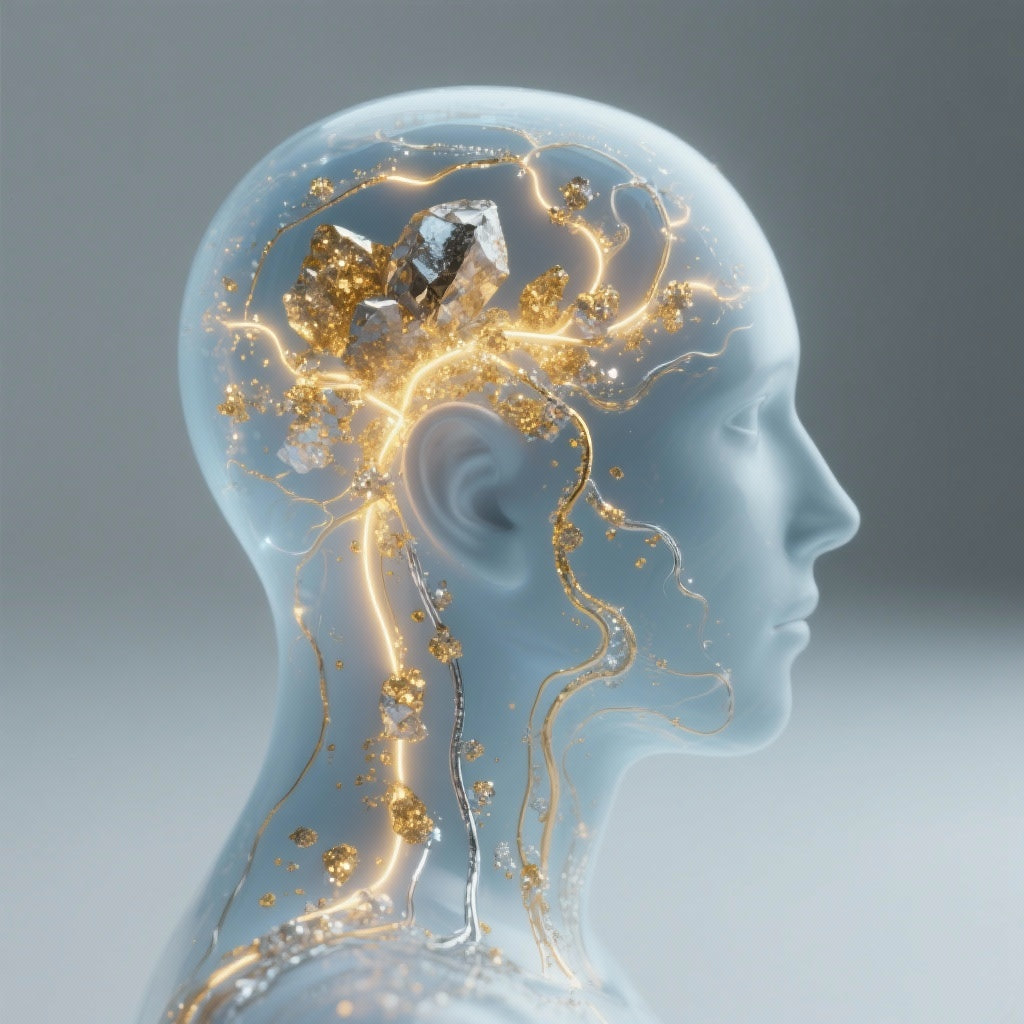10 Tell-Tale Signs Your Brain Is Lacking Essential Minerals
Do you often feel foggy-headed, even after a good night's sleep? Do you struggle to concentrate on a task or remember important details? These everyday annoyances aren't inevitable. They could be a subtle signal that your brain, the most complex organ in your body, is crying out for vital nutrients. Essential minerals are the true conductors of our cognitive functions. Without them, the symphony of our thoughts, memory, and mood can quickly become disjointed. In this article, we'll decipher 10 warning signs of a mineral deficiency that directly affects your mental well-being. Learn to listen to your body and discover how to give your brain the fuel it needs to function at its full potential.
1. Brain Fog: When Thoughts Become Blurry
Brain fog, or "brain fog," isn't a medical diagnosis, but it perfectly describes that feeling of confusion, forgetfulness, and mental indistinction. If you feel like you're thinking through a thick fog, a magnesium or iron deficiency could be the culprit. Magnesium plays a crucial role in transmitting nerve signals, while iron is essential for transporting oxygen to the brain. Even a slight lack of oxygen can slow your thinking processes and leave you in a persistent state of confusion.
Think of it like your brain's internet connection: when the signal is weak (lack of minerals), pages (your thoughts) take longer to load and the information is incomplete. To learn more about nutrients that boost mental clarity, check out our information blog .
2. Persistent Mental Fatigue
We're not talking about the normal fatigue after a long day, but a mental exhaustion that sets in first thing in the morning and never leaves you. This feeling of being completely drained can be directly linked to a lack of potassium and sodium , two essential electrolytes for nerve function and cellular energy. These minerals help maintain the fluid balance of your cells, including neurons. An imbalance can lead to inefficient neuronal communication, leaving you mentally exhausted, even without intense physical exertion.
"Mental fatigue is often the first symptom of an electrolyte imbalance. The brain is extremely sensitive to variations in the minerals that fuel its electrical activity."
3. Memory and Concentration Problems
Forgetting where you put your keys or having trouble following a conversation are frustrating experiences. If they become frequent, your brain may be deficient in zinc and iodine . Zinc is an essential cofactor for more than 300 enzymes in the body, many of which are active in the hippocampus, the brain region responsible for memory and learning. Iodine, meanwhile, is vital for the production of thyroid hormones that regulate the metabolism of the entire body, including the brain. An underactive thyroid due to iodine deficiency can directly impact your ability to concentrate.
4. Mood Swings and Irritability
Do you feel more irritable or prone to mood swings for no apparent reason? Your emotional balance depends heavily on neurotransmitters like serotonin and dopamine. The production of these "happiness molecules" requires minerals such as magnesium and calcium . Magnesium helps calm the nervous system, while calcium is involved in the release of neurotransmitters. A deficiency can disrupt this delicate chemistry, making you more reactive to stress and emotionally unstable.
5. Poor Sleep Quality
Sleep is when your brain cleanses and repairs itself. Difficulty falling asleep, frequent awakenings during the night, or unrefreshing sleep are strong signs of a magnesium deficiency. This mineral is essential for the production of GABA, a neurotransmitter that promotes relaxation and deep sleep. Without enough magnesium, your nervous system can remain in a state of alert, preventing your brain from entering the restorative sleep phases it desperately needs. Adopting a lifestyle that promotes relaxation can also help.
6. Frequent Headaches or Migraines
If headaches become a regular occurrence, a magnesium or potassium deficiency could be the cause. Magnesium helps relax blood vessels in the brain, and a deficiency can cause them to constrict, triggering tension headaches or migraines. Similarly, a potassium imbalance can affect blood pressure and nerve function, also contributing to the development of headaches.
Key finding: Studies show that nearly 50% of people with migraines have lower than normal intracellular magnesium levels.
7. Uncontrollable Cravings for Sugar or Salt
Your body is intelligent. Sudden and intense cravings for specific foods can be its way of telling you that it's lacking certain nutrients. Craving chocolate? It might be a sign you need magnesium . Uncontrollable cravings for salty foods? Your body could be deficient in sodium and other electrolytes, especially after physical exertion or in hot weather. Listening to these signals can help you identify and address deficiencies before they have a more serious impact on your cognitive health.
8. Muscle Weakness, Spasms or Cramps
Although it may seem purely physical, the brain-muscle connection is direct. Muscle cramps, eyelid spasms, or a general feeling of weakness are classic signs of a magnesium , potassium , or calcium deficiency. These minerals are electrolytes that control muscle contractions. If communication between your brain and muscles is disrupted by a lack of minerals, it's highly likely that other internal communications within your brain will also be affected.
9. Increased Anxiety or Nervousness
A persistent feeling of anxiety, nervousness, or heart palpitations can be exacerbated by a magnesium deficiency. As we have seen, this mineral has a calming effect on the nervous system. It acts as a brake on the activity of certain brain receptors (NMDA), preventing overstimulation that can lead to anxiety. Sufficient magnesium intake helps regulate the stress response and promote a sense of calm.
10. Difficulty Managing Stress
If you feel overwhelmed by even the slightest stress, your adrenal glands may be depleted of minerals. The body's stress response consumes significant amounts of magnesium and B vitamins . Furthermore, zinc plays a role in regulating cortisol, the stress hormone. A chronic deficiency in these nutrients can weaken your ability to cope with daily challenges, creating a vicious cycle where stress depletes your minerals, and the lack of minerals makes you more susceptible to stress.
Conclusion: Nourish Your Brain for a Life Full of Clarity
Recognizing these 10 signs is the first step to regaining control of your mental and cognitive health. From brain fog to anxiety, many everyday ailments can stem from a simple lack of essential minerals. Listening to your body is paramount. A rich and varied diet is key, but a modern lifestyle and depleted soils can make it difficult to obtain all the necessary nutrients.
The next step? Take action. Explore natural solutions to address these deficiencies and restore your brain's vitality. Focus on mineral-rich foods or explore high-quality supplements for targeted support. For ideas on how to incorporate more minerals into your diet, visit our recipe blog .
Do you recognize any of these signs in your daily life? Share your experience in the comments!







